
Anti-Israel Media Bias Continues to Surge
By: Marelinke van der Riet, ICEJ Publications Assistant
The war between Israel and Hamas in Gaza reignited in late March and with it a potent wave of pro-Palestinian, anti-Israel propaganda, as the media bias machine against Israel quickly swung back into gear following a two-month ceasefire. Sadly, the distorted anti-Israel narrative ensnaring countless news consumers worldwide hasn’t stopped.
The truce-and-hostage-release deal lasted from January 19 until March 18 and thankfully saw the return of 33 Israeli hostages freed alive and the bodies of 4 deceased Israelis. But the ceasefire collapsed after Hamas repeatedly refused to release more hostages. This prompted Israel to launch a surprise wave of airstrikes on Hamas commanders in Gaza to pressure the terrorist faction to agree to a truce extension.
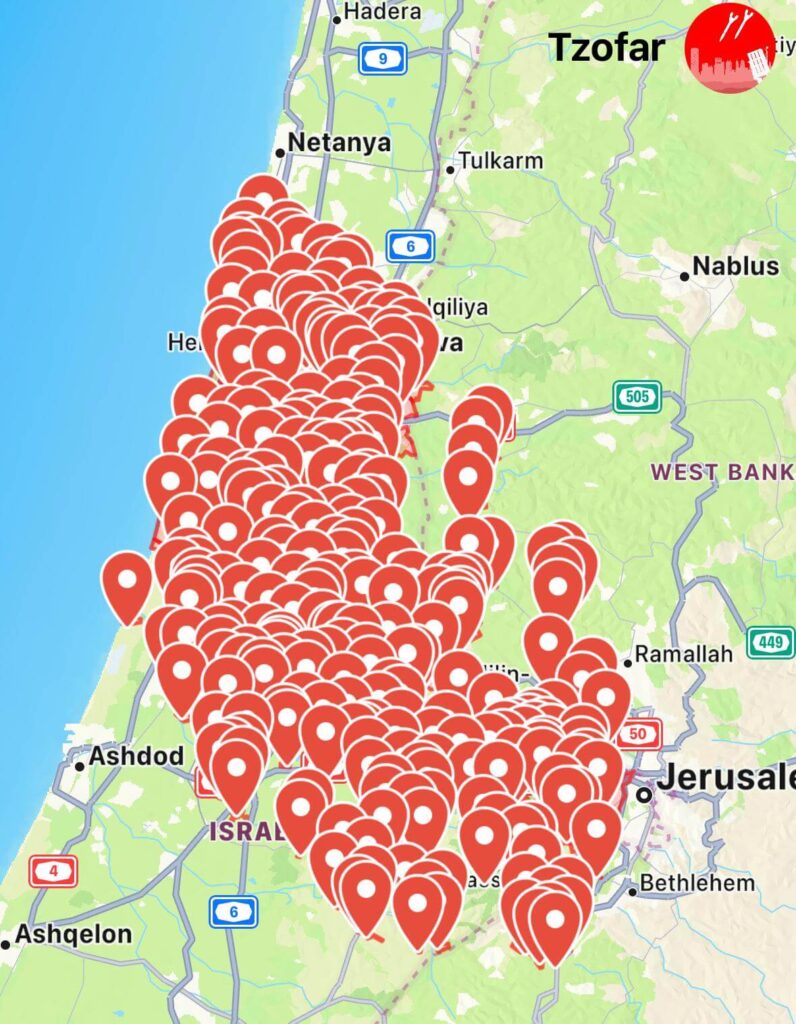
Global headlines immediately accused Israel of breaching the ceasefire and killing 400 Palestinians—dutifully reporting as fact once more the dubious figures dispensed by the Gaza Ministry of Health, which is run by Hamas.
By instantly blaming Israel, the media ignored that the truce itself stipulates that phase one of the deal would automatically be extended as long as phase two negotiations were in progress. Israel also has maintained that the second phase requires the demilitarization of Gaza, while Hamas has been parading its weapons in public again and adamantly refuses to disarm.
This all shows that the conflict is not just a battle between armed forces—it is a battle for truth. It is a battle against the pervasive media bias that continually misrepresents Israel’s actions, painting the Jewish State in a negative light even as the rocket sirens blare once more across the country. And when Israel is inevitably proven right, the damage has already been done.
So, let’s get the story straight.
The Hypocrisy and Contradictions in the anti-Israel Palestinian Narrative
The hypocrisy and incoherence of the Palestinian narrative are overwhelming, yet it continues to garner sympathy and support from the international community. Palestinians and their supporters call for a “boycott of all Israeli things,” even targeting non-Israeli companies like Starbucks simply because their founders are Jewish. Yet, these same boycotters are quick to demand that Israel provide aid and services to Gaza.
They call for a “global intifada,” meaning a violent uprising against Jews and their friends everywhere. Yet these same voices demand a “ceasefire now.” They insist on an end to the Israeli occupation while rejecting peace offers that could have granted the Palestinians their own state long ago. These glaring contradictions are rarely addressed by pro-Palestinian activists and their compliant allies in the media.
Meanwhile, these boycotters downplay or deny the enormity of the Holocaust, with some calling it “a Jewish Zionist invention” even while others say, “Hitler was right! He should have finished the job!” The media ignores this double-speak, or worse, excuses and rationalizes it as a pardonable practice in the Palestinian struggle for self-determination.
Sins of Omission: The Selective Reporting of Events
One of the oldest tricks in this chronic media bias is the use of omission. The idea is simple: leaving out critical pieces of the story skews the narrative. For example, on numerous occasions in 2024, news outlets around the world reported that “Israel fired rockets into Lebanon,” but many failed to mention that these rockets were retaliation for previous Hezbollah rocket fire from Lebanon into Israel. By excluding the context of ongoing missile and drone attacks deliberately targeting Israeli civilians, the story becomes one of unprovoked aggression rather than self-defense.
Clever Wording: Manipulating the Narrative
In addition to omission, wording is another powerful tool used by the media to influence public opinion. On June 8, 2024, headlines across major outlets celebrated the “release” of four Israeli hostages held by Hamas. One of these hostages was Noa Argamani. At first glance, this may seem like a positive development. However, a closer look reveals the manipulative phrasing. The hostages were not “released” by Hamas; they were rescued by the Israeli Defense Forces (IDF) after enduring unimaginable trauma at the hands of their captors. It was Israel’s military intervention, not Hamas goodwill, that freed them.
This is just one example of how subtle or clever word choices in media coverage can mislead the public. Such distortions of truth lie at the heart of the Palestinian narrative, and the media amplifies them. But rest assured, those responsible will ultimately face consequences. Proverbs 19:5 is clear: “A false witness will not go unpunished, and he who speaks lies will not escape” (NKJV).
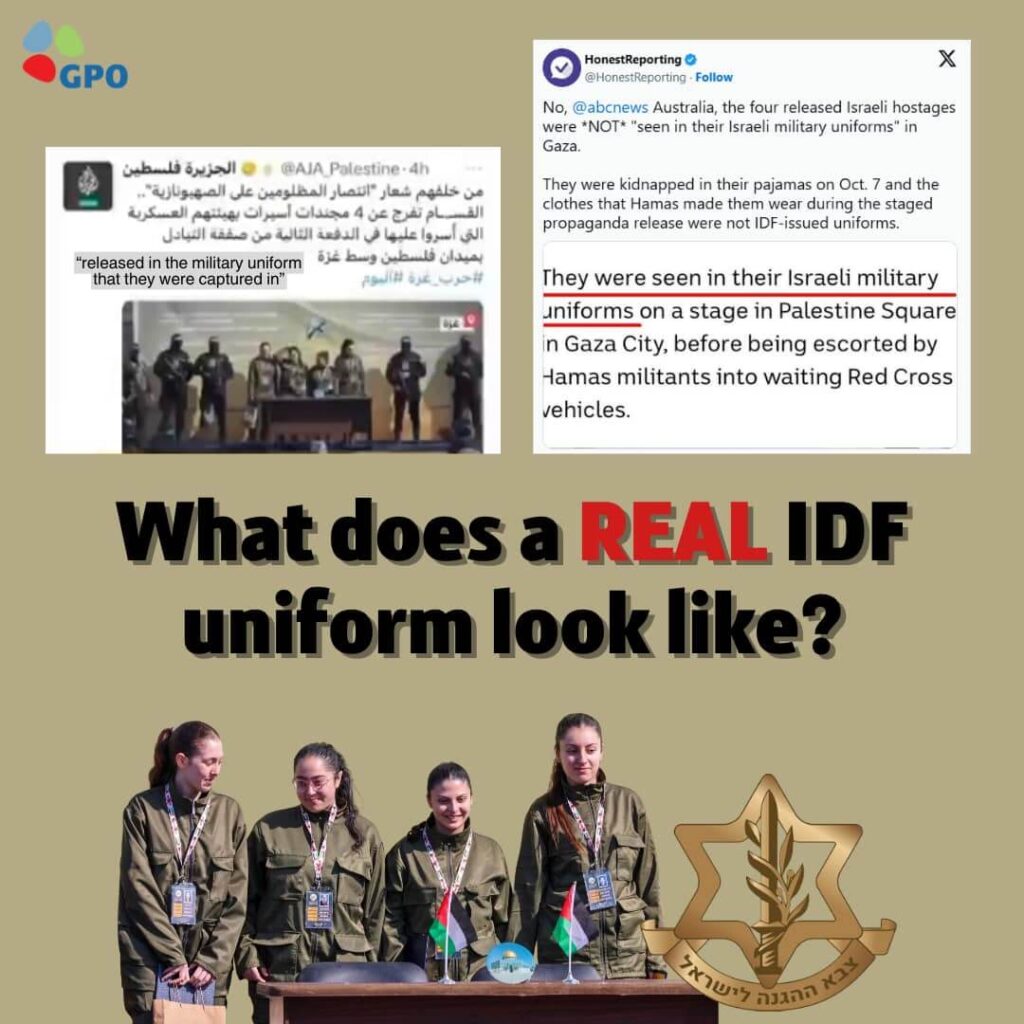
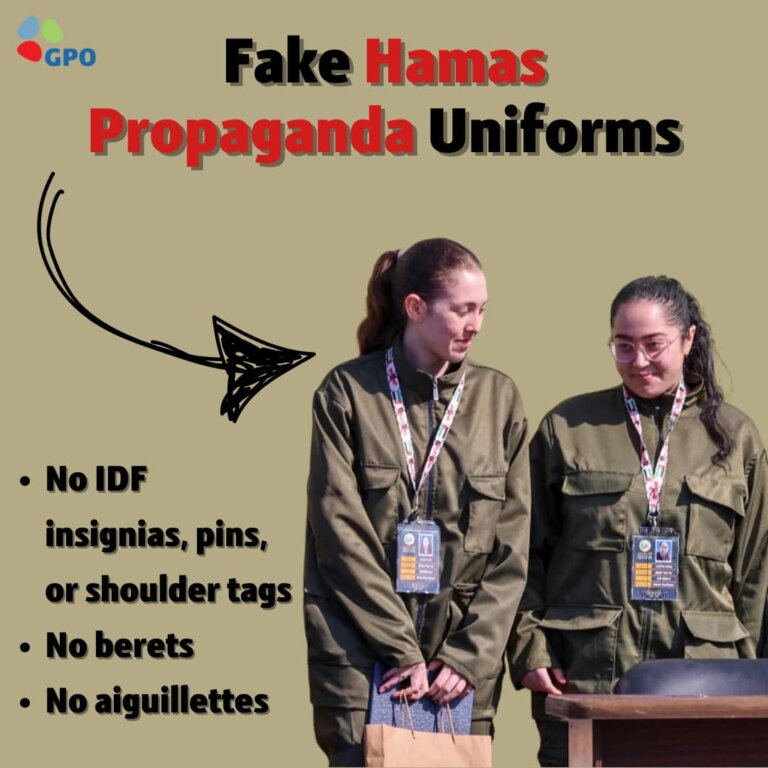

Perhaps the most glaring example of media bias is the double standard applied to Israel. A shocking interview aired on BBC in late 2024, where a reporter questioned Jonathan Conricus, a former IDF spokesperson, about why the IDF did not warn Gaza civilians before a covert military operation to rescue hostages in central Gaza. Conricus answered truthfully: “If we had warned, no hostages would have survived.” However, the reporter’s question suggests a dangerous and unrealistic expectation. Why would Israel be expected to give advance notice when doing so would endanger the lives of their own citizens and soldiers?
This question highlights the profound double standards often applied to Israel, where its actions are scrutinized in ways that would never be directed at other nations. No military in the world would be asked such a question, yet Israel’s actions are always held to a different, higher standard.
Pressure and Accountability: Media Manipulation in Casualty Reporting
This disparity becomes even more evident when we examine how the media manipulates casualty reporting to further this bias. For instance, when reporting on casualties, why does the media often highlight Palestinian deaths without providing essential context? After an Israeli operation in Gaza, headlines typically blare: “100 Palestinians Killed in Israeli Operation, Mostly Women and Children” or “50” or “500”—always some nice round figure they decide to use that day. A general rule of thumb would be to take those numbers, divide by 10, and assume 50 percent are Hamas combatants.
Further, the implication is obvious that Israel is always to blame for these deaths. However, the media rarely points out that many of these casualties were directly linked to Hamas’ use of human shields and the fact that Hamas militants do not distinguish between civilians and combatants. Moreover, the Hamas-run “Health Ministry” in Gaza frequently inflates the casualty numbers, which are then routinely parroted by the media and the United Nations—a malpractice proven time and again. Reliable sources are key.
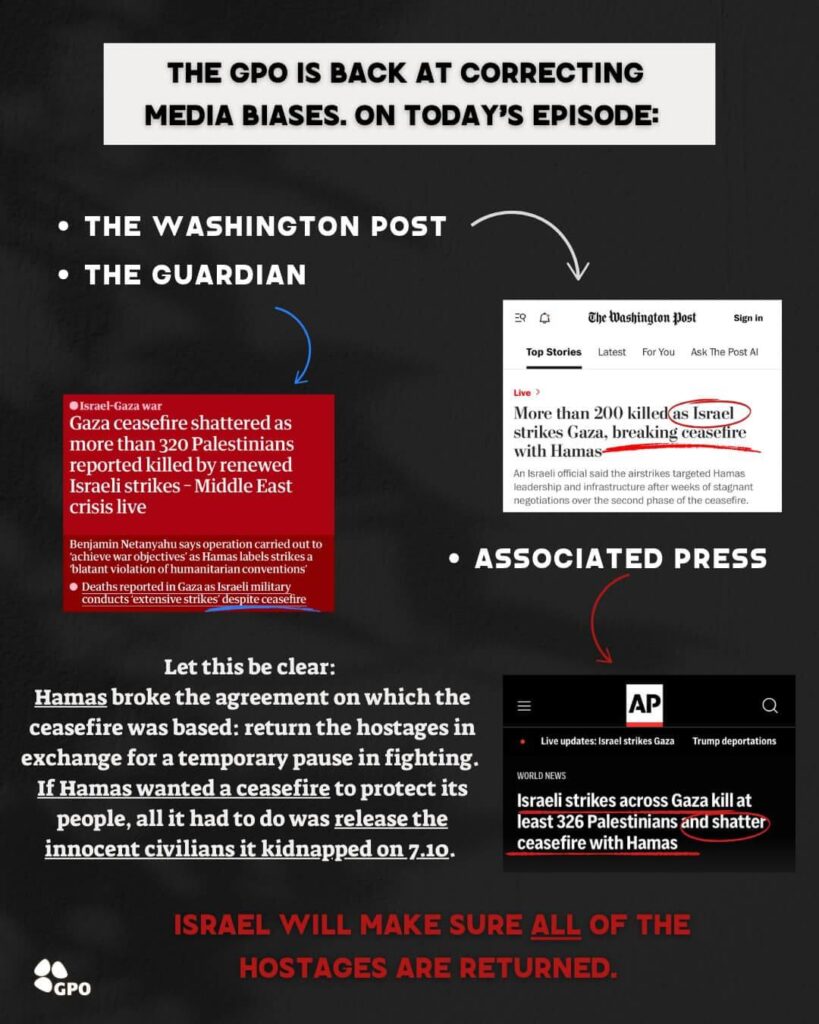
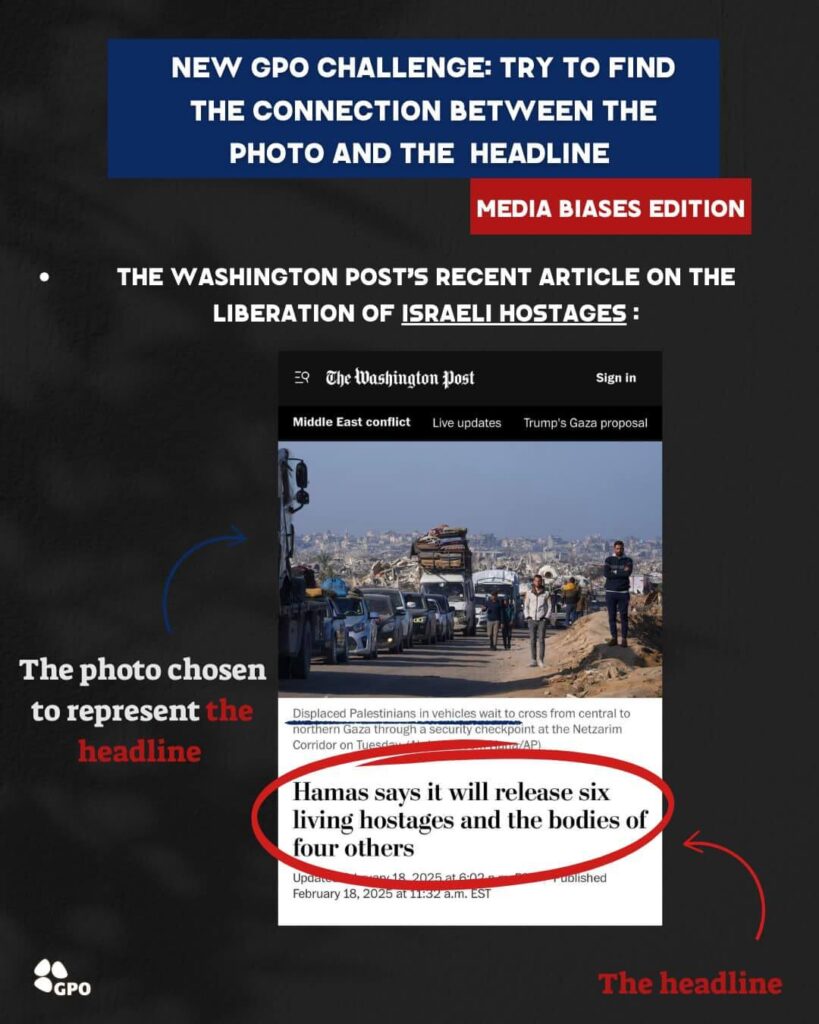
On the Palestinian side, the media often fails to hold Hamas accountable for the civilian deaths caused by their actions. If Hamas refuses to release hostages or uses civilians as shields, the responsibility is conveniently shifted onto Israel. Despite Israel’s right to defend its citizens, it endures relentless scrutiny while Hamas’ cruelty and refusal to negotiate are largely ignored
Israel faces immense pressure to end the conflict and scale back military responses, yet no such pressure is ever applied to Hamas to release the hostages or end its violence. The truth is, the responsibility for these casualties rests solely with Hamas, who has chosen to use human shields and continues to reject peace proposals and hostage releases.
The Erosion of Objectivity, Neutrality, and Impartiality
Journalistic integrity is supposed to be rooted in objectivity, yet many media outlets today are seen as more ideologically driven than fact driven. The decline of objective journalism has led to increasingly polarized media, where even reputable outlets may sacrifice impartiality for a specific narrative, particularly in complex conflicts such as the anti-Israel, pro-Palestinian dispute.
Multiple reports have accused the BBC of bias in its coverage of the Israel-Hamas conflict. A recent study led by lawyer Trevor Asserson identified 1,553 instances where the BBC allegedly breached its own editorial guidelines, including issues of impartiality and accuracy.
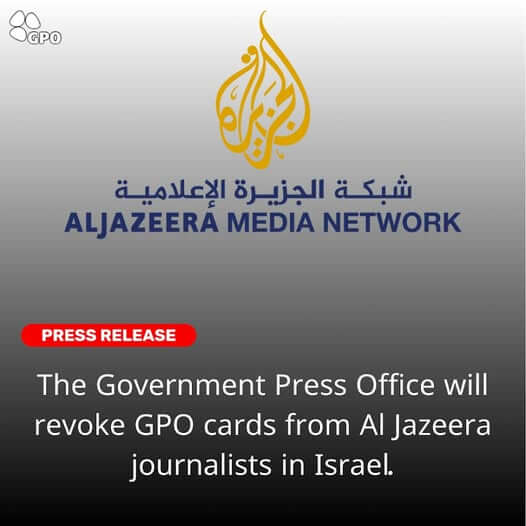
Organizations like the United Nations, which are supposed to act as impartial observers, often take sides in the Israeli-Palestinian conflict. The media frequently quotes their reports and statements, which can carry significant weight in shaping public perception. International bodies, again, like the United Nations, sometimes contribute to biased narratives by failing to hold all parties accountable equally, and their reports are often selectively used or misrepresented by the media.
The Role of Social Media in Amplifying Anti-Israel Bias
In the digital age, social media has become a powerful amplifier of media bias, often spreading misinformation, rumors, and biased narratives much faster than traditional outlets. These platforms contribute to the spread of anti-Israel sentiment by allowing misinformation to flourish and gain traction without proper fact-checking. Generation Z, in particular, is using TikTok as their primary information hub, leading them down a cesspool of anti-Israel sentiment. On the other hand, since October 7, Jewish influencers have risen to advocate for Israel and present the Israeli perspective. This is something we want to see more of.
A Call for Truth
As Christians and advocates of truth, we cannot afford to remain silent during such a critical time in history and in the face of such media manipulation. The media’s relentless bias against Israel distorts the truth, perpetuating injustice and misinformation that can, and already has, incited violence and division. It is crucial for those who stand with Israel to speak up and set the record straight when the media distorts the facts.
Ultimately, the real story of Israel is being authored by God and shaped by His eternal truth, and no amount of media bias can ever erase it.
Support the ministry of the ICEJ and bless the people of Israel at: www.icejusa.org/donate
Related Articles
Why We Must Speak Up about the October 7 Sexual Violence
Is Israel Using Famine as a Weapon of War?
Was Gaza an Open-Air Prison?
Keep Learning
The Feasts of the Lord and Their Rich, Biblical Significance


